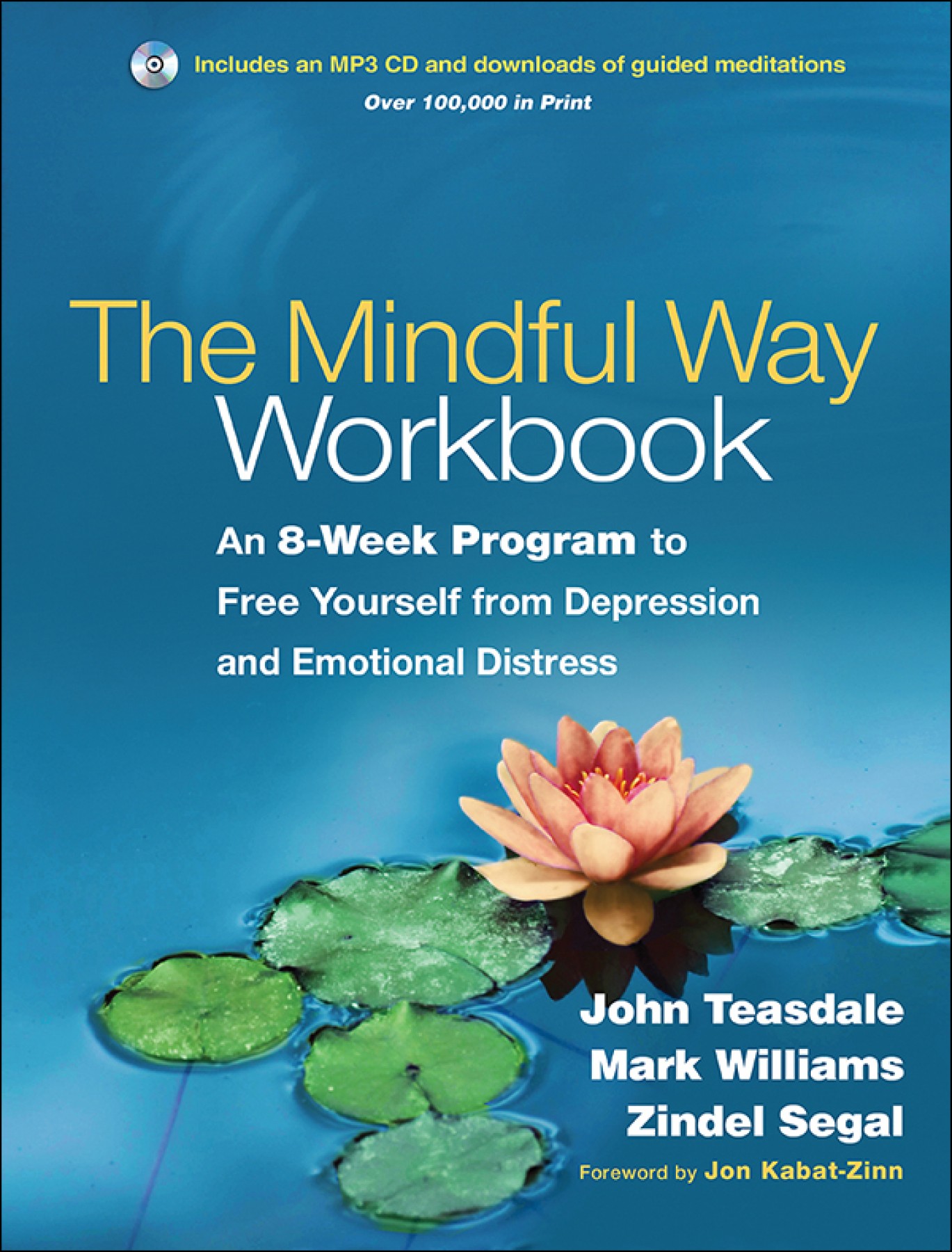The Mindful Way Workbook is an eight-week mindfulness-based cognitive therapy (MBCT) programme for depression and emotional distress. MBCT is an evidence-based treatment which has been found to be effective for depression and anxiety, as well as a wide range of other emotional problems. The book is authored by three experts in the field and having used the related guide The Mindful Way through Depression with clients in therapy, I was interested to see whether it would add additional value. The workbook is designed so it can be used as a self-help book, as part of individual therapy, or as part of a MBCT group programme.
The workbook is easy to navigate. It begins with providing foundations for the programme, including explaining mindfulness and how we get stuck in depression and other difficult emotions. It is then organised week by week, introducing new content followed by daily practices. These practices are invaluable in cultivating moment to moment awareness and noticing and interacting differently with our thoughts, feelings and bodily sensations. The workbook is interactive and provides space for reflections. I particularly enjoyed the captions which made it feel like you are part of a supportive, kind and compassionate group of other participants and knowledgeable facilitators.
The book includes an MP3 CD and links to a website where you can download guided meditations and worksheets. I found it helpful being able to download the guided meditations onto my mobile phone so I could practice them whenever I had the chance. There is also an additional resources and notes section at the back of the book.
I’ve found that The Mindful Way Workbook adds great value to the aforementioned guide – it provides additional tools and practical guidance, and is particularly useful if independently undertaking MBCT. The eight-week programme requires sustained and significant effort by the reader, but is undoubtedly rewarding through its ability to help cope with emotional distress and enhance wellbeing, teaching us new ways to respond to our thoughts and feelings.
Reviewed by Dr Anna Walters, Clinical Psychologist.

